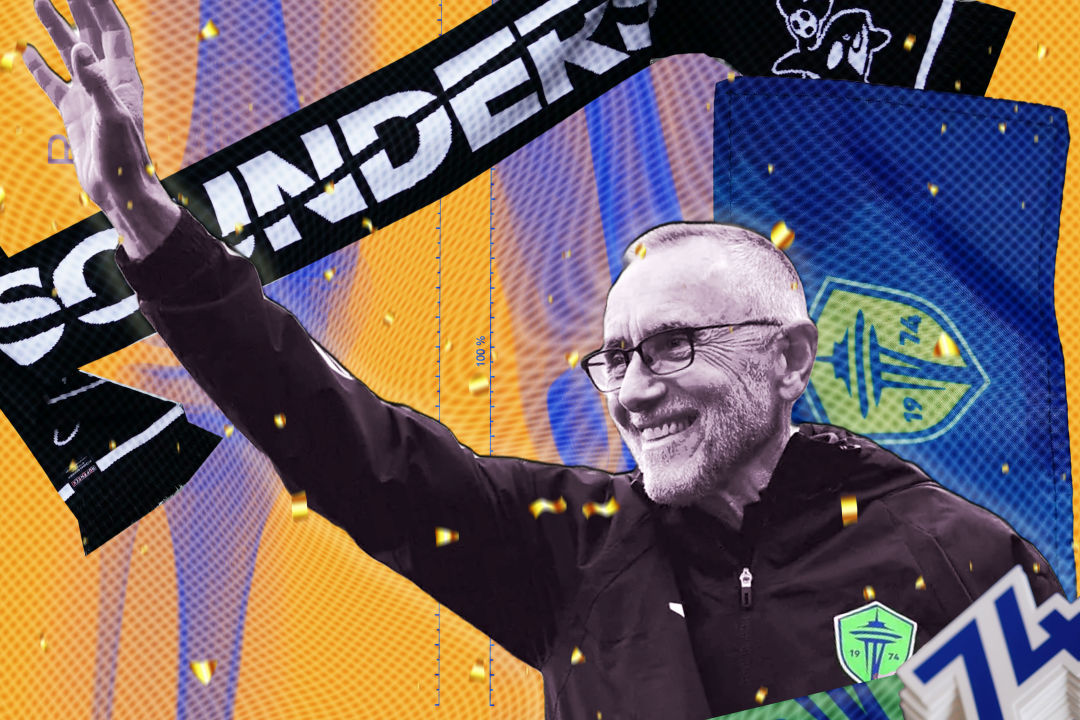Sounders Doc Michael Morris Says Goodbye

“In soccer, you see a lot of guys go down, and they’re just making a scene,” says Dr. Michael Morris. “But when it looks like a real injury, you’re nervous about what happened to him. Especially if it’s somebody you operated on.”
Morris would know. As the Seattle Sounders’ chief medical officer and team orthopedic surgeon since the team’s Major League Soccer debut, he often found himself jogging onto the pitch to tend to fallen players. This made him a familiar face to fans, despite the grim circumstances in which they’d typically see him. If the player popped up, Morris would retreat to the sidelines, relieved. But when a serious injury presented itself, his work was just beginning.
When then–Sounders general manager Bart Wiley entered his office at Virginia Mason in 2006, Morris was thrilled. An orthopedic surgeon who had some experience working with professional athletes during a fellowship once, he was the top choice to become the team physician when the Sounders were planning a move from the United Soccer Leagues to the larger stage of MLS.
Morris was already familiar with the sport. He coached some of his own kids, and his family used to spend their weekends traveling around the area for games. “My wife and I were starting to fall in love with the game of soccer, so the opportunity really appealed to me,” he says.
His first task was building out his medical team with high-quality physicians who had the personality to mesh with professional athletes and the necessary dedication for the role.
“I met with different departments like neurology for concussions and ENT for broken noses,” Morris says. “I’d say, ‘If you want to become a Sounders doctor, you’ve got to come to games, you’ve got to be there early, you’ve got to stay late. And if somebody needs to be seen, you need to find a way to work them in that day.’”
On game days, sometimes after performing surgery on patients at his clinic, Morris would arrive at Lumen Field two hours before kickoff with a handful of players waiting to be examined. He’d huddle with the training staff and bring suggestions to the coaches on who was game-ready and who should sit. Then he’d watch games from the sidelines.
From that vantage point, Morris saw a lot of great soccer as the team joined MLS in 2009, since taking home two MLS Cups. He also had the unique gift of sharing the pitch with his son Jordan again, a star forward with the team since 2016. “I felt lucky to still be a soccer dad on the sidelines,” he says.
Over his 18 years with the organization, Morris and his staff searched for better processes and techniques in academic papers, at medical conferences, and by observing other staffs. They reduced injuries by borrowing the individualized training approach used by European teams. For years, the team was plagued by hamstring tears, the most common injury in soccer. But with new techniques to identify grades of tears and a return-to-play protocol that puts players on bikes instead of resting, they returned players back to the pitch faster with reduced risk of reinjury.
The Sounders’ medical staff has grown from five to 11 members since Morris started, and both team and staff now enjoy a massive new training facility in Renton with lavish treatment and recovery rooms.
Morris retired from his clinical practice at the end of 2021 and began transitioning out of his role with the Sounders. This past spring, he announced he was officially stepping down. The team honored him at their home match on April 20.
Next on the horizon for the former soccer doc? “Play more golf and travel more.” He and his wife want to head back to Hawaii and are thinking about Europe. He will continue to watch every Sounders game on TV, and plans to see plenty of games in person, too—as many as he can with his two young grandkids.
So this new soccer granddad is off the sidelines for now, but perhaps not for long.




